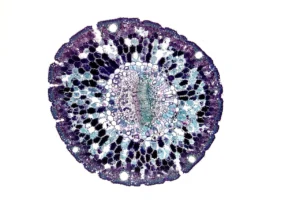
FDA Accepts Application for Merck’s KEYTRUDA® (pembrolizumab) Plus Chemotherapy as First-Line Treatment for Locally Advanced Unresectable or Metastatic Gastric or Gastroesophageal Junction Adenocarcinoma
RAHWAY, N.J.–(BUSINESS WIRE)– Merck (NYSE: MRK), known as MSD outside of the United States and Canada, today announced the U.S. Food and Drug Administration (FDA) has accepted for review a new supplemental Biologics License Application (sBLA) seeking approval for KEYTRUDA, Merck’s anti-PD-1 therapy, in combination with fluoropyrimidine- and platinum-containing chemotherapy, for the first-line treatment of patients with locally advanced unresectable or metastatic gastric or gastroesophageal junction (GEJ) adenocarcinoma. The sBLA is based on data from the KEYNOTE-859 trial, in which KEYTRUDA plus chemotherapy demonstrated a statistically significant improvement in overall survival (OS) versus chemotherapy alone, regardless of PD-L1 expression, in patients who were human epidermal growth factor receptor 2 (HER2) negative. The FDA has set a Prescription Drug User Fee Act (PDUFA), or target action, date of December 16, 2023.
“The five-year survival rate for patients diagnosed with metastatic gastric cancer is estimated to be only six percent, and eighty percent of patients with locally advanced unresectable or metastatic gastric or gastroesophageal junction adenocarcinoma have HER2-negative disease,” said Dr. Scot Ebbinghaus, vice president, global clinical development, Merck Research Laboratories. “We are committed to working closely with the FDA to bring KEYTRUDA to more patients with gastric and gastroesophageal junction cancer who are in need of additional treatment options that may help them live longer.”
KEYTRUDA is currently approved in combination with trastuzumab, fluoropyrimidine- and platinum-containing chemotherapy, for the first-line treatment of patients with locally advanced unresectable or metastatic HER2-positive gastric or GEJ adenocarcinoma in the U.S. This indication was approved by the FDA under accelerated approval based on tumor response rate and durability of response data from the Phase 3 KEYNOTE-811 study. Continued approval for this indication may be contingent upon verification and description of clinical benefit in the confirmatory trials.
Merck has an extensive clinical development program evaluating KEYTRUDA in gastrointestinal cancers, which includes KEYNOTE-811 in first-line advanced HER2-positive gastric cancer, KEYNOTE-585 in early-stage gastric cancer, and further exploration in advanced/metastatic gastric cancer in LEAP-015. Merck is continuing to study KEYTRUDA for multiple uses in hepatobiliary, esophageal, pancreatic, colorectal and biliary tract cancers.
About KEYNOTE-859
KEYNOTE-859 is a randomized, double-blind Phase 3 trial (ClinicalTrials.gov, NCT03675737) evaluating KEYTRUDA in combination with chemotherapy compared to placebo in combination with chemotherapy for the first-line treatment of patients with HER2-negative locally advanced unresectable or metastatic gastric or GEJ adenocarcinoma. The primary endpoint is OS, and secondary endpoints include progression-free survival, ORR, duration of response and safety. The trial enrolled 1,579 patients who were randomized to receive KEYTRUDA (200 mg every three weeks for up to approximately two years) in combination with fluoropyrimidine- and platinum-containing chemotherapy (n=785), or placebo in combination with chemotherapy (n=787). All patients received investigator’s choice of chemotherapy (5-fluorouracil plus cisplatin or capecitabine plus oxaliplatin).
About gastric cancer
Gastric (stomach) cancer tends to develop slowly over many years and rarely causes early symptoms, resulting in most cases going undetected until an advanced stage.More than 70% of patients with gastric cancer develop advanced-stage disease. Most gastric cancers are adenocarcinomas (about 90-95%), which develop from cells in the innermost lining of the stomach (known as the mucosa). The majority of gastric cancers are HER2-negative, affecting approximately four out of every five patients. Gastric cancer is the fifth most diagnosed cancer and the fourth leading cause of cancer death worldwide, with approximately 1.1 million patients diagnosed and 768,000 deaths from the disease globally in 2020.In the U.S., it is estimated there will be approximately 26,500 patients diagnosed with gastric cancer and 11,000 deaths from the disease in 2023. The five-year survival rate for patients diagnosed with gastric cancer at an advanced stage is only 6%.
About KEYTRUDA® (pembrolizumab) injection, 100 mg
KEYTRUDA is an anti-programmed death receptor-1 (PD-1) therapy that works by increasing the ability of the body’s immune system to help detect and fight tumor cells. KEYTRUDA is a humanized monoclonal antibody that blocks the interaction between PD-1 and its ligands, PD- L1 and PD-L2, thereby activating T lymphocytes which may affect both tumor cells and healthy cells.
Merck has the industry’s largest immuno-oncology clinical research program. There are currently more than 1,600 trials studying KEYTRUDA across a wide variety of cancers and treatment settings. The KEYTRUDA clinical program seeks to understand the role of KEYTRUDA across cancers and the factors that may predict a patient’s likelihood of benefitting from treatment with KEYTRUDA, including exploring several different biomarkers.
Selected KEYTRUDA® (pembrolizumab) Indications in the U.S.
Gastric Cancer
KEYTRUDA, in combination with trastuzumab, fluoropyrimidine- and platinum-containing chemotherapy, is indicated for the first-line treatment of patients with locally advanced unresectable or metastatic HER2-positive gastric or gastroesophageal junction (GEJ) adenocarcinoma.
This indication is approved under accelerated approval based on tumor response rate and durability of response. Continued approval for this indication may be contingent upon verification and description of clinical benefit in the confirmatory trials.
Source link:https://www.merck.com




